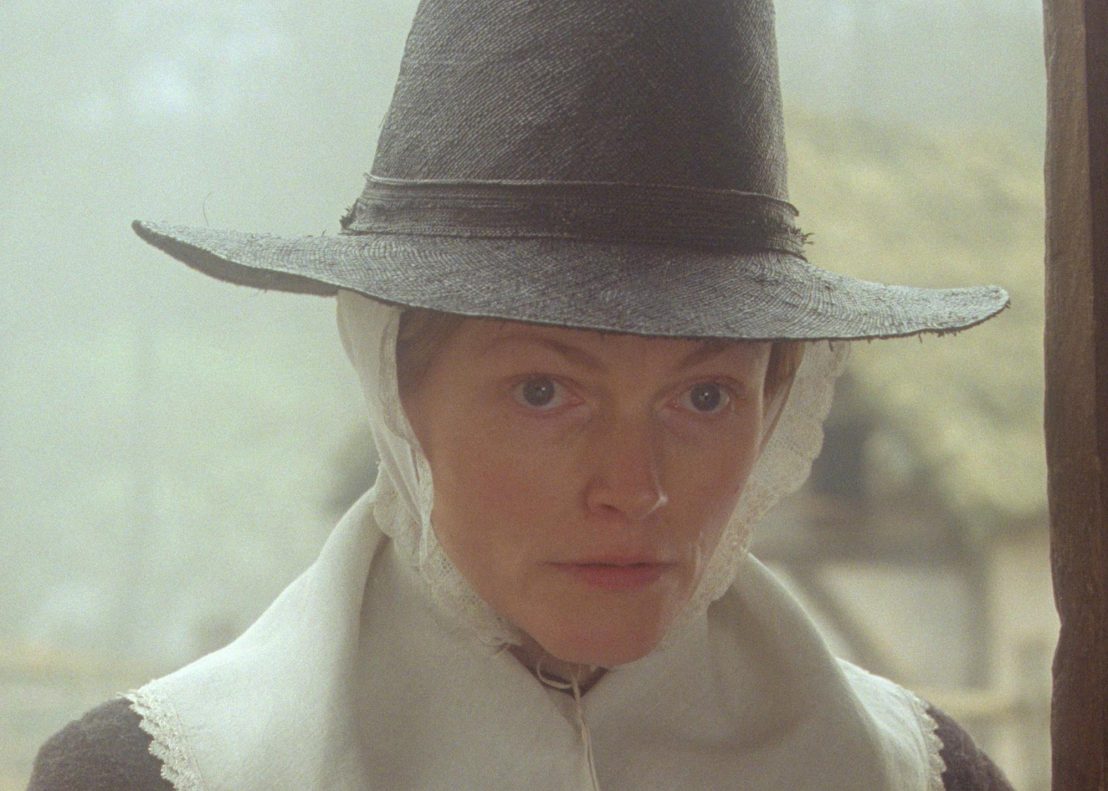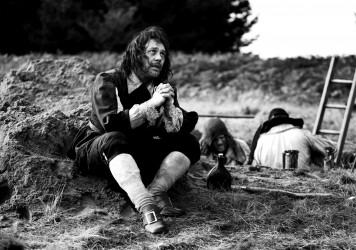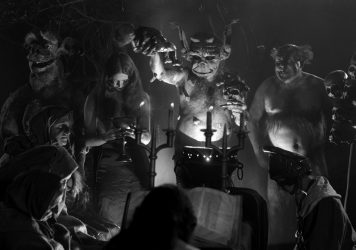
This slow-burn folk horror set in old, weird England marks the auspicious return of talented British director Thomas Clay.
The wait has been agonising. The question of when the British director Thomas Clay would make another movie started to mutate into the question of whether he’d make another movie at all. His 2008 film Soi Cowboy was something fresh, unique and cosmopolitain, a controlled and moving yarn set in Thailand with a Danish star and in thrall to the Italian existential cinema of the 1960s.
It’s so great that he got another run-out and I sincerely hope he has many more, even if this new one, Fanny Lye Deliver’d, isn’t perhaps the all-out slam dunk we were hoping for. But it is a film which follows its own instincts and is happy to retain (and proudly display) a few ragged edges, and it’s all the more interesting for it.
In terms of its milieu, if the apostrophised past tense verb in the title hadn’t already set alarm bells ringing, we’re dropped into the fetid bogs of Shropshire, England during the early modern era (mid 1600s). The Lye clan live a peaceable, God-fearing life on a desolate farm: there’s wounded military man and iron-fisted patriarch John (Charles Dance); whey-faced pre-teen son Arthur (Zak Adams); and doting, gentle matriarch Fanny (Maxine Peake).
John is a man who punishes insubordination and is quick to administer the cane, particularly if he spots the members of his small brood denigrating the teachings of the Holy Bible. Their drab, ritualistic life is knocked off its pivot when two naked and bruised stowaways, who claim to have been robbed of their belongings, seek refuge in the Lye’s barn. He, Thomas (Freddie Fox), wins over the suspicious John with talk of his days in the army, while the lightly lascivious Rebecca (Tanya Roberts), becomes close to prim Fanny.
And when all the pieces are on the board, Clay just allows the drama to slowly evolve. Tensions emerge as Thomas’s loosey-goosey religious and political convictions are revealed to be extremely out of synch with the more unswervingly fundamentalist John. This is no mere home invasion thriller, as the writer/director seeks to explore the idea of our unwillingness to, if not accept the divergent ideologies of our fellow man, then at the very least accept that individuals should be free to choose the strictures by which they live their own lives.
The film is shot on gorgeous, thick-grained 35mm film, and Clay manages to wring much aesthetic mileage from shots of the misty moors, glistening expanses of soggy mud, and the dusty bars of light which illuminates the Lye household. The dialogue has been written in period-appropriate English, and the actors make fine work of wrapping their tongues around a great many antiquated expressions and terms.
Peake is slowly, quietly proving to be one of this country’s very finest actors, and her stellar work here adds to that renown – her character evolution over the course of the film is both nuanced and convincing. Also, if it weren’t already obvious, this feels deeply indebted to the classic folk horror films of the 1970s, and could almost work as an unofficial sequel to one of the all-time greats: Michael Reeves’ Witchfinder General.
As in that film, we see the tide slowly turn on the scourge of religious puritanism. It doesn’t quite come together in the seamless and slick way you’d perhaps like it to, and is hampered by an unnecessary narration (intoned, for reasons unknown, by Rebecca). Tonally, too, it’s a little all over the place, with what initially feels like an a more artfully-inclined study of domestic anxiety blossoming into something that’s closer to revenge horror. All told, it’s great to have a true blue maverick like Clay back in the saddle, and hope his next one comes around a little sooner.
Published 15 Oct 2019

Kill List director Ben Wheatley returns with a monochrome drug chimera which won't be to all tastes.

The actor, writer and comedian revisits the Swedish cult oddity ahead of a rare festival screening.